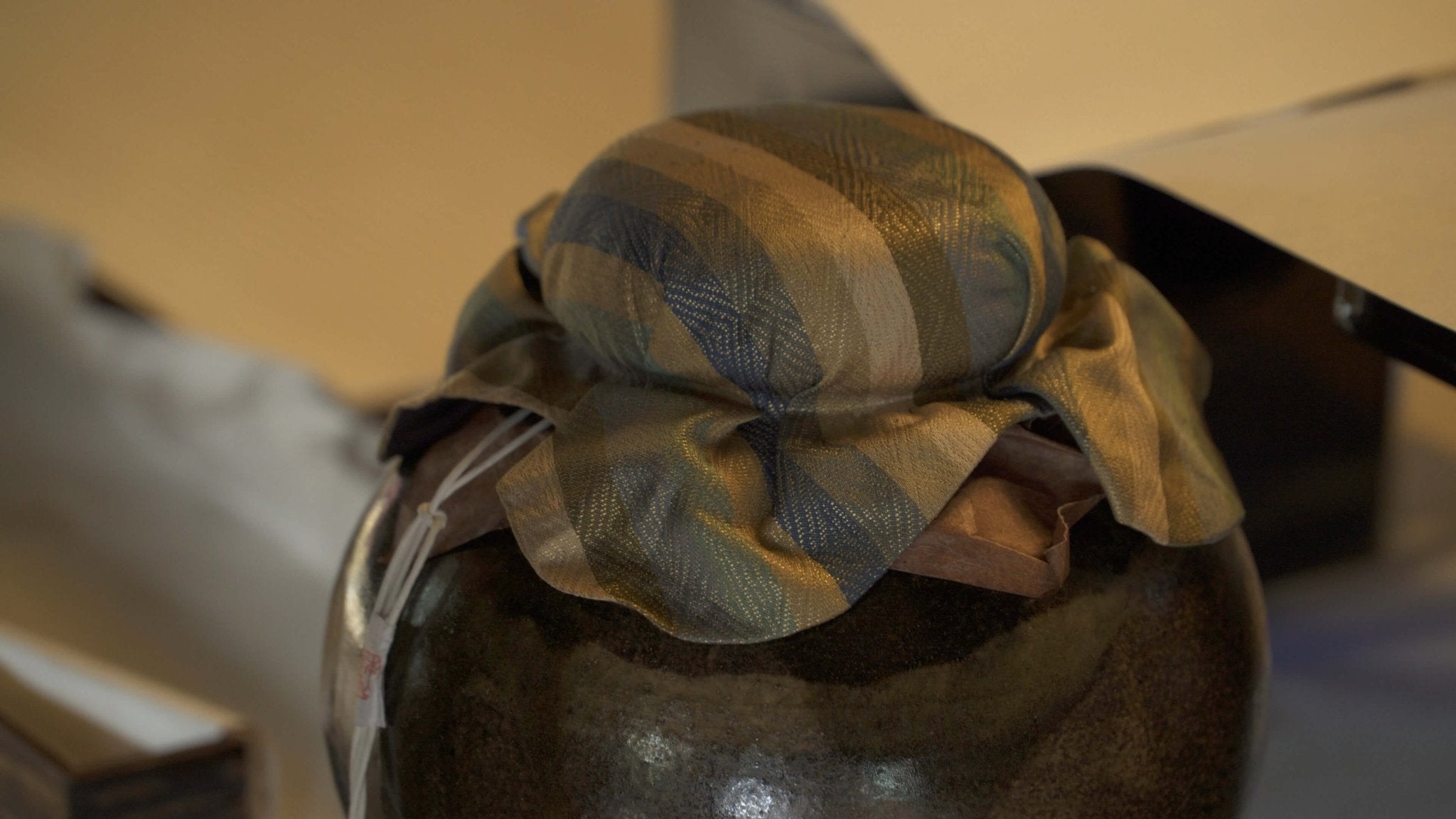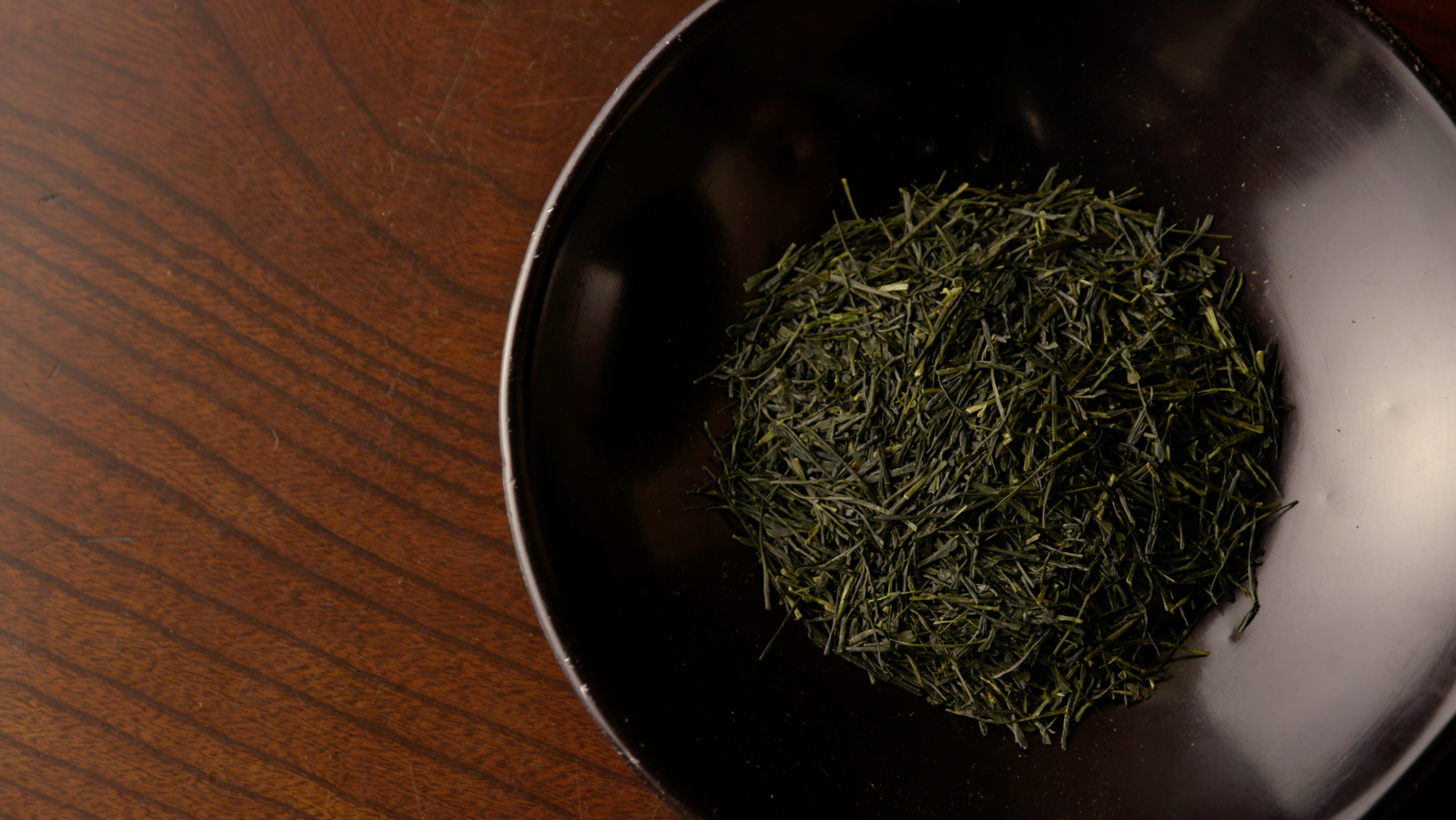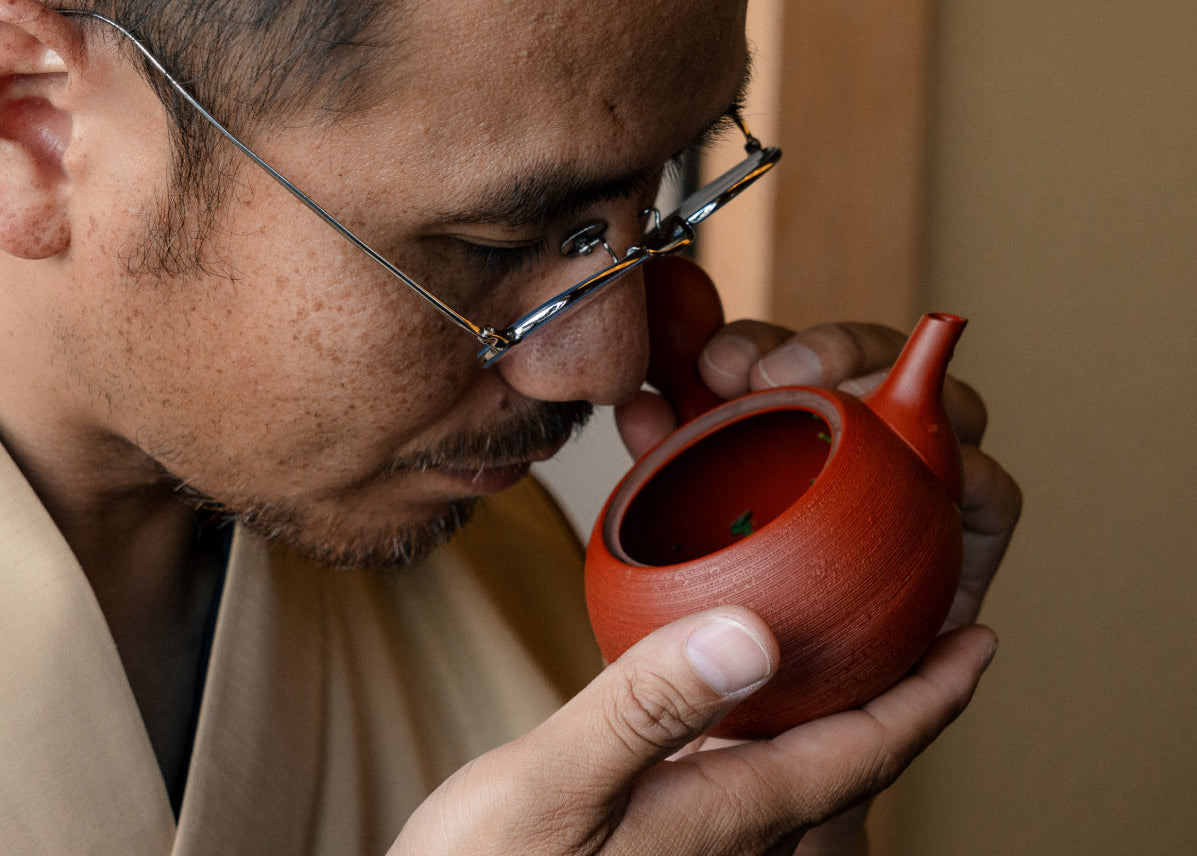

Vous êtes-vous déjà demandé comment le vieillissement affecte les saveurs du thé japonais ? 🌿
Dans cet article, nous plongeons dans le concept fascinant de "Kojuku" (後熟), ou le vieillissement du thé, tel qu'expliqué par notre maître de thé, Mohei. Découvrez comment cette pratique traditionnelle transforme les saveurs et les arômes du thé japonais, créant une expérience unique.
Kojuku, écrit en caractères chinois comme "後熟", combine "後" (après) et "熟" (mûrir) pour décrire le processus de maturation ou d'affinage du thé. Contrairement au Shincha, qui célèbre la fraîcheur de la première récolte, le Kojuku se concentre sur le vieillissement des feuilles de thé pour développer une saveur plus ronde et douce au fil du temps. Cette pratique remonte à des siècles et a été perfectionnée par des générations de maîtres du thé. Cependant, la technique n'a pas été rendue publique et reste inconnue à ce jour.

Lumière : L'exposition à la lumière du soleil peut dégrader la qualité du thé, le faisant perdre sa couleur vive et son goût frais. Historiquement, les feuilles de thé étaient stockées dans des pièces sombres et fraîches pour préserver leur qualité.
Température : Des températures élevées peuvent accélérer la détérioration du thé, entraînant une perte de saveur et d'arôme. La méthode traditionnelle de stockage du thé consistait à le conserver dans des bocaux à thé dans des entrepôts à thé construits dans des endroits frais. (en raison des tremblements de terre fréquents, les gens ne construisaient pas de caves souterraines).
Humidité : L'humidité peut favoriser la croissance de moisissures et gâcher le thé. Dans certaines régions, les niveaux d'humidité sont naturellement optimaux pour le stockage du thé, mais les méthodes modernes impliquent souvent des équipements de réfrigération pour maintenir des conditions idéales.
Air : L'exposition à l'oxygène peut oxyder le thé, modifiant son profil de saveur et sa couleur. Les bocaux à thé, des conteneurs hermétiques fabriqués à partir de matériaux tels que l'argile ou la porcelaine, sont utilisés depuis des siècles pour protéger le thé de l'atmosphère. Après le développement des boîtes à thé en bois et en fer galvanisé au début de la période Meiji, les boîtes à thé ont été utilisées pour stocker et transporter les feuilles de thé. Aujourd'hui, le thé est conditionné dans des sacs robustes à plusieurs couches, qui sont scellés sous vide pour éliminer tout l'air, puis stockés dans des boîtes en carton.
Le vieillissement du thé est un art qui nécessite de la précision. Lorsqu'il est bien fait, le thé développe une saveur plus arrondie et mature. Cependant, si l'un des éléments clés ci-dessus n'est pas contrôlé, le thé peut se détériorer, perdant ses qualités souhaitées.
Un thé qui a été vieilli avec succès pendant neuf ans dans un réfrigérateur, à l'abri de la lumière, de l'air et de l'humidité, conservera sa couleur verte et son arôme frais. En revanche, un autre thé mal stocké pendant 15 ans affichera une teinte blanchâtre ou rougeâtre et une odeur de moisi.
Lors de la dégustation de thé vieilli, vous pouvez vous attendre à une saveur plus douce et plus arrondie par rapport au thé frais. Le processus de vieillissement élimine les aspérités, créant un goût plus lisse et plus complexe.
À l'inverse, le thé détérioré aura un goût plat et rassis, avec une perte notable de ses saveurs vives d'origine.
Certains connaisseurs de thé comparent l'expérience de la dégustation de thé vieilli à celle de savourer des vins de collection, où le passage du temps améliore la complexité et la profondeur de la boisson.

Pour éviter les pièges du thé détérioré et profiter des bienfaits du thé vieilli, chez vous, conservez votre thé dans un endroit sombre. Évitez les températures élevées et gardez votre thé dans un environnement frais et prévenez l'humidité en le stockant dans un endroit sec. Enfin, assurez-vous de limiter l'exposition à l'air autant que possible en utilisant des contenants hermétiques.
Lisez notre Guide de stockage du thé article pour les meilleures pratiques et la comparaison des contenants !
Le voyage du Shincha frais au Kojuku vieilli reflète la profondeur et la complexité de la culture du thé japonais. Les thés frais et vieillis ont chacun leur charme unique, et comprendre les différences peut enrichir votre expérience de dégustation de thé. Un stockage et un vieillissement appropriés peuvent transformer votre thé en une boisson riche et complexe qui offre un aperçu unique de l'art du thé japonais.
Nous vous encourageons à explorer le monde des thés vieillis et à découvrir les saveurs et arômes uniques que Kojuku a à offrir. Bonne infusion et profitez du voyage à travers le monde du thé de Mohei ! Restez à l'écoute pour plus d'informations sur le riche patrimoine et les saveurs diversifiées du thé japonais. Suivez-nous sur nos réseaux sociaux pour les dernières mises à jour et du contenu exclusif du Maître du Thé Mohei.